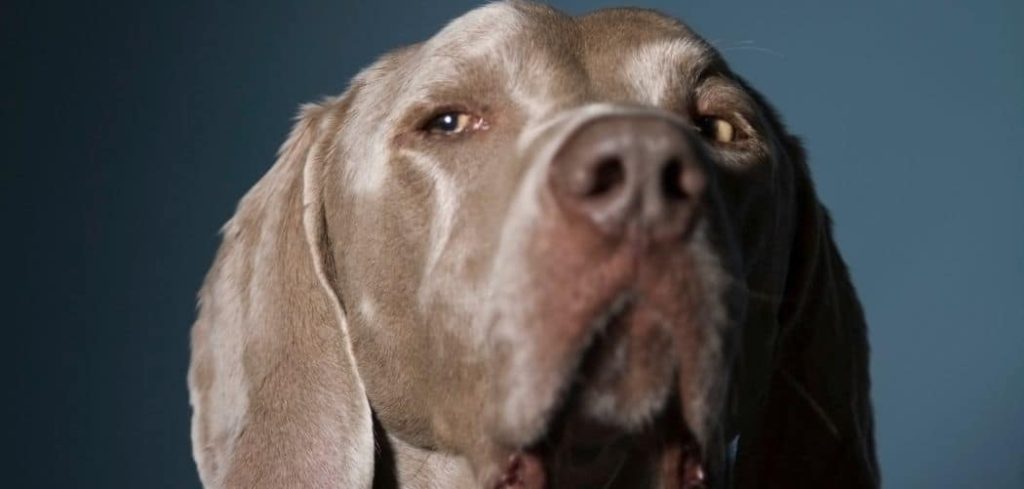It can be heartbreaking and confusing when your senior dog suddenly starts refusing food and having accidents indoors. These changes may signal an underlying health issue or age-related decline.
We outline the common causes of old dog not eating and peeing in the house, what you can do at home, and when to seek veterinary help.
Old Dog Not Eating and Peeing in the House — Why It Happens
A sudden lack of appetite combined with inappropriate urination in an older dog often points to medical or cognitive changes. These symptoms can arise from conditions like kidney disease, diabetes, urinary tract infections, or even canine dementia. Hormonal imbalances and arthritis may also be involved. Some dogs may lose bladder control due to medication side effects or declining mobility.

Common Causes of Old Dog Not Eating and Peeing in the House
Kidney Disease
As dogs age, their kidney function can deteriorate. When the kidneys stop filtering toxins efficiently, waste builds up in the bloodstream, leading to nausea and appetite loss.
Increased urination is also common, which may result in accidents indoors, especially if your dog can’t get outside in time.
Look for signs like weight loss, lethargy, vomiting, or excessive thirst. Kidney disease is progressive and requires long-term management with diet and hydration support.
Related: Old dog diarrhea and not eating (Here’s why)
Diabetes
Senior dogs are more prone to diabetes, a condition where the body can’t regulate blood sugar. High glucose levels lead to excessive thirst and urination.
Your dog might pee more frequently or have accidents, especially if they can’t hold it overnight.
At the same time, blood sugar fluctuations can make your dog feel nauseated or weak, causing them to stop eating.
Weight loss despite a normal or increased appetite earlier in the disease is a red flag.
Urinary Tract Infection (UTI)
UTIs aren’t just painful — they can also cause frequent urination and loss of bladder control.
Your dog might strain to pee or have dribbles and puddles around the house. The discomfort can make them less interested in food.
Senior female dogs are especially vulnerable to UTIs. If your dog suddenly avoids meals and starts peeing indoors, an infection is a likely suspect.
Canine Cognitive Dysfunction (Dog Dementia)
Just like humans, dogs can experience cognitive decline with age.
They may become disoriented, forget housetraining habits, or seem confused about routines.
Some dogs lose interest in food due to confusion, stress, or altered sensory perception.
If your dog is pacing, staring at walls, or showing signs of nighttime restlessness alongside appetite loss and accidents, dementia could be a factor.
Arthritis or Mobility Issues
Older dogs often struggle with arthritis or hind-leg weakness. If it becomes painful or difficult to move, they may avoid walking to their food bowl or hesitate to go outside to relieve themselves.
In these cases, the issue isn’t a lack of appetite but rather discomfort and physical limitation.
You might also notice stiffness, limping, or reluctance to climb stairs or jump.
Medication Side Effects
Some medications prescribed for senior dogs — especially for pain, heart conditions, or seizures — can cause gastrointestinal upset or increased urination.
Your dog may pee more frequently or develop incontinence. Appetite loss is another common side effect.
If the symptoms began after a new prescription, talk to your vet about possible alternatives or dosage adjustments.
What to Do If Your Dog Is Not Eating and Peeing in the House
Start by offering easily digestible, aromatic food like plain chicken and rice to stimulate appetite. Warming the food slightly can also help.
Ensure your dog has frequent potty breaks, especially after meals and before bedtime.
If mobility is an issue, provide indoor potty pads or create an accessible potty area.
Monitor your dog’s water intake and urine color. Dehydration or changes in urination frequency may help your vet make a diagnosis.
Try to keep routines consistent and reduce stress. Dogs with dementia or anxiety may benefit from calming supplements, white noise machines, or pheromone diffusers.
If your dog struggles with movement, place food and water bowls nearby and consider orthopedic bedding.
When to Call or Visit Your Vet
If your senior dog refuses to eat for more than 24 hours or has multiple accidents in a short period, a vet visit is warranted.
Seek urgent care if you notice:
Bloody or cloudy urine
Vomiting or diarrhea
Weight loss or severe lethargy
Disorientation or signs of pain
Foul-smelling urine or straining to pee
Any combination of appetite loss and changes in urination could point to a serious condition that needs medical attention.
Read more: Dog Not Eating and Drinking a Lot of Water (Is it serious or just dehydration?)
Key Takeaway
When an old dog is not eating and peeing in the house, it’s often a signal that something deeper is going on — whether medical, cognitive, or emotional. Acting early gives your dog the best chance at relief and improved quality of life.
Work closely with your vet to pinpoint the cause and make adjustments that support your senior dog’s changing needs with compassion and care.
